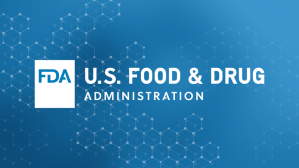Tips to avoid getting ripped off during current pandemic
 With the COVID-19 threat being an omnipresent one, the Federal Drug Administration (FDA) and the Federal Trade Commission (FTC) are issuing letters to a number of sellers of unapproved and misbranded products, claiming they can treat or prevent the Coronavirus. The companies’ products include teas, essential oils and colloidal silver. The FTC says the companies have no evidence to back up their claims—as required by law. The FDA says there are no approved vaccines, drugs or investigational products currently available to treat or prevent the virus.
With the COVID-19 threat being an omnipresent one, the Federal Drug Administration (FDA) and the Federal Trade Commission (FTC) are issuing letters to a number of sellers of unapproved and misbranded products, claiming they can treat or prevent the Coronavirus. The companies’ products include teas, essential oils and colloidal silver. The FTC says the companies have no evidence to back up their claims—as required by law. The FDA says there are no approved vaccines, drugs or investigational products currently available to treat or prevent the virus.
Closer to home, county officials report on new scammers pretending to be with the Nassau County Department of Health. Nassau County Executive Laura Curran and Nassau County Police Commissioner Patrick J. Ryder are urging residents to be vigilant when receiving telephone solicitations or emails from persons which could be scams or rumors regarding COVID-19. Resident have been alerting county officials about incoming phone calls from scammers pretending to be with the Nassau County Department of Health. These callers ask for personal information including social security numbers. The department of health never asks for this type of information and residents are advised to wary when receiving phone calls, texts or any other type of solicitations.
“While we all remain home to protect our health, we must stay vigilant to also protect our finances and private information,” Curran said. “Nassau County has zero-tolerance for scammers preying on anxious residents and vulnerable populations isolated at home during this time of crisis. Know the facts: no one legitimate will call and ask for your banking information or social security number.”
The following tips should be followed to avoid falling victim to scams:
• Hang up on robocalls. Don’t press any numbers. The recording might say that pressing a number will let you speak to a live operator or remove you from their call list, but it might lead to more robocalls, instead.
• Ignore online offers for vaccinations and home test kits. There currently are no vaccines, pills, potions, lotions, lozenges or other prescription or over-the-counter products available to treat or cure COVID-19. Visit the FDA website to learn more.
• Fact-check information. Scammers, and sometimes well-meaning people, share information that hasn’t been verified. Before you pass on any messages, contact trusted sources. Visit www.usa.gov/coronavirus for links to federal, state and local government agencies.
• Know who you’re buying from. Online sellers may claim to have in-demand products, like cleaning, household, and health and medical supplies when, in fact, they don’t.
• Don’t respond to texts and emails about checks from the government. Details are still being worked out and anyone who tells you they can get you the money now is a scammer.
• Don’t click on links from sources you don’t know. They could download viruses onto your computer or device.
• Watch for emails claiming to be from the Centers for Disease Control and Prevention (CDC) or experts saying they have information about the virus. For the most up-to-date information about the Coronavirus, visit the Centers for Disease Control and Prevention (CDC) and the World Health Organization (WHO).
• Do your homework when it comes to donations, whether through charities or crowdfunding sites. Don’t let anyone rush you into making a donation. If someone
wants donations in cash, by gift card or by wiring money, don’t do it.
If you believe you may have been a victim of any of these scams, call 911 immediately.































